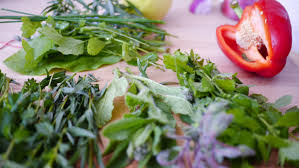Having access to fresh herbs and vegetables right outside your kitchen door is a game-changer. Whether you’re a seasoned gardener or a complete beginner, starting a kitchen garden can be both rewarding and practical. Beyond saving trips to the grocery store, it also allows you to maintain better control over the quality of what you eat. Growing your own produce is simpler than you might think and doesn’t require a sprawling backyard to get started. With some basic planning and consistent care, you can create a thriving kitchen garden to support your cooking adventures and overall well-being.
Choose the Right Location
The success of your kitchen garden largely depends on selecting the right spot. Most herbs and vegetables need at least six hours of sunlight a day, so choose an area that gets plenty of natural light. If outdoor space is limited, consider growing in containers on a sunny balcony or windowsill. Good drainage is also essential; plants don’t thrive in waterlogged soil. Before planting, observe your chosen location for a few days to ensure it gets consistent sunlight and isn’t prone to extreme wind or shade from nearby structures.
Start Small and Plan Wisely
When starting a kitchen garden, it’s easy to get carried away with ambitious plans. However, starting small ensures that you can manage and maintain your garden effectively. Focus on a few versatile herbs and veggies that you frequently use in cooking, such as basil, mint, parsley, lettuce, tomatoes, or peppers. Sketch a simple layout of your garden to determine where each plant will go. Companion planting—growing plants that support each other’s growth, like tomatoes and basil—is an excellent way to maximize limited space and resources.
Prepare the Soil
Healthy plants begin with healthy soil. Test your soil’s pH level and nutrient content before planting, as this helps you understand what amendments are needed. If you’re working with poor soil, adding compost or organic matter can significantly improve its quality. For container gardens, use a high-quality potting mix designed for vegetables and herbs. Remember, the goal is to support the roots by creating a well-draining, nutrient-rich environment that encourages robust growth.
Choose the Right Plants
Not all herbs and vegetables are created equal when it comes to ease of growth. For beginners, opt for low-maintenance plants like rosemary, thyme, spinach, and cherry tomatoes. These varieties tend to be forgiving and require less attention compared to more delicate plants. If you’re planting directly in the ground, leave enough space between each plant to ensure proper air circulation. For container gardens, make sure each pot is appropriately sized to support the mature growth of the plant.
Establish a Watering and Maintenance Routine
Consistent care is the backbone of a flourishing kitchen garden. Watering needs vary depending on the plant and season, but as a general rule, water deeply and less frequently to encourage strong root development. Overwatering can lead to root rot, so always check the soil’s moisture level before watering. Regularly prune herbs to encourage new growth and remove any yellowing leaves or weeds to maintain a healthy garden environment. Fertilize periodically using an organic fertilizer to replenish nutrients in the soil and support plant vitality. While enjoying the benefits of your garden, you can also consider supplements like USANA Cellsentials, which help support general health maintenance and well-being, complementing the nutrition from your fresh produce.
Protect Your Garden
Your kitchen garden may attract pests, but simple steps can help keep them at bay. Introduce natural deterrents like marigolds, which repel aphids and other common garden pests. Using neem oil or homemade sprays made from garlic and chili can also support pest control without resorting to harsh chemicals. If you’re dealing with larger intruders like squirrels or birds, consider adding netting or protective covers over your plants.
Enjoy the Fruits of Your Labor
There’s nothing quite like harvesting fresh herbs and vegetables you’ve grown yourself. Whether it’s snipping fresh basil for pasta sauce or adding crisp lettuce to a salad, your kitchen garden will elevate your cooking and bring a sense of accomplishment. Beyond the immediate benefits of fresh produce, tending to a garden provides a relaxing and fulfilling way to connect with nature.
Starting a kitchen garden doesn’t have to be complicated or intimidating. With a little effort and consistency, you can cultivate a space that supports your culinary creativity and enhances your lifestyle. Whether you’re growing a few pots of herbs or transforming a patch of your backyard, the joy of nurturing plants is something everyone can enjoy. Take that first step today, and you’ll soon reap the rewards of your very own kitchen garden.


